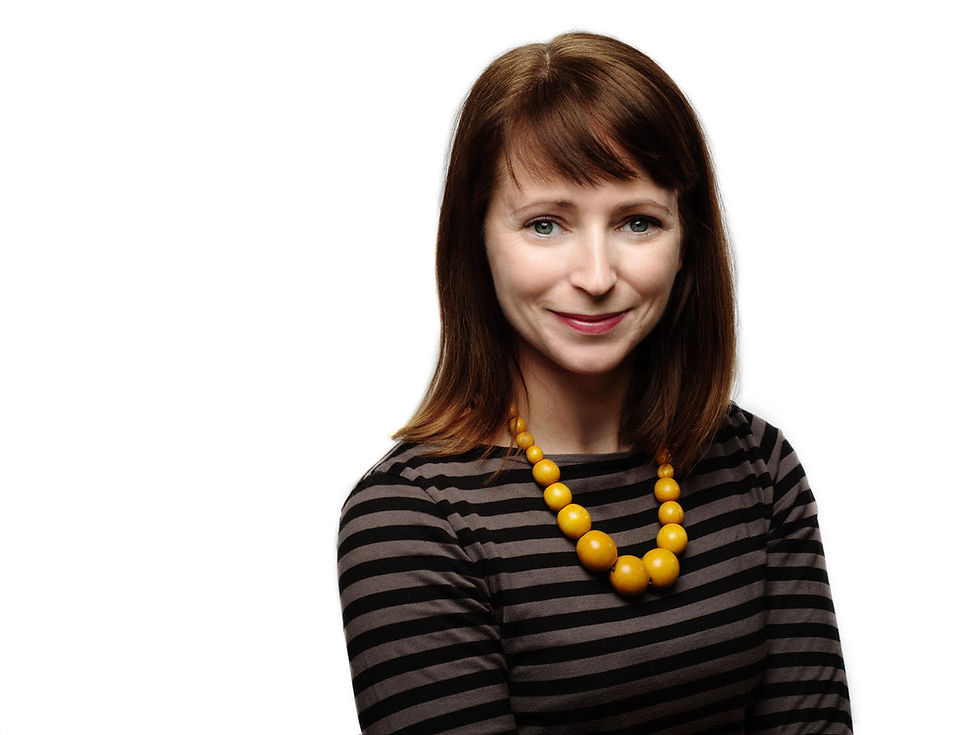The Common Sense Colloquy: Q&A with Jessica Lovering of Good Energy Collective
- Ben Finzel

- Feb 18, 2022
- 3 min read
Energy policy is now also climate policy. Decisions about what types of energy sources to build for the future are now inextricably linked with their impact on the planet. As this connection has become ever more obvious, interest in nuclear energy has grown. But challenges remain, to be sure.
This month’s Q&A subject is Jessica Lovering, co-founder of Good Energy Collective (GEC). Jessica stepped into that breach to build the “progressive case for nuclear energy as an essential part of the broader climate change agenda.” She works with a small team of “scientists, researchers, engineers, nuclear policy experts, and science communicators.” We’ve had the pleasure of collaborating a bit with Jessica via our work with (client) the Nuclear Innovation Alliance. Jessica and her colleagues are leading the way for an entirely different kind of conversation about an important energy generation source. It only made sense to ask her to participate in the Common Sense Colloquy. We’re so glad she said yes.
Jessica has a fascinating – and varied – professional background. Reading her bio is a combination of travelogue and academic tour. She earned two Master’s degrees in Astrophysics and Environmental Studies at the University of Colorado AND a PhD in Engineering and Public Policy at Carnegie Mellon University. At one point, she lived and worked in Alaska helping fight wildfires and backpacking around Alaska and Western Canada (which inspired her focus on climate change). She worked with the Breakthrough Institute on their nuclear energy work, eventually leading their Energy program. In addition to her current role at Good Energy Collective, she is a Fellow at the Energy for Growth Hub, focusing on how to deploy advanced nuclear in emerging economies, and a fellow at the University of Michigan’s Fastest Path to Zero Initiative. Wow!
It’s not every day that you meet a fascinating, smart and capable communicator with such a strong academic background. But that’s Jessica. We’re so happy to have this opportunity to include her in the Common Sense Colloquy – what a great way to wrap up our Fourth Year!
Our thanks to Jessica for sharing her wisdom with us – and you.
Q: What is the progressive case for nuclear energy as an essential part of the broader climate change agenda?
A: The inclusion of nuclear energy can help accelerate the transition to a low-carbon energy system, reducing greenhouse gas emissions and local air pollution without requiring a reduction in overall energy consumption. Many renewables-only energy scenarios imply decreased reliability of electricity, constraints on access to modern energy, or higher energy prices – all of which have significant justice implications.
Q: Good Energy Collective makes a special effort to center its work in considerations of environmental justice. That’s not something the nuclear industry has done before. Why is that important? How has that been received in your outreach?
A: The nuclear industry (and nuclear energy more broadly) has a bad reputation, much of which is justified! When people, especially progressives, hear “nuclear,” they think of weapons, contamination, and mining on Indigenous lands. We’re working to get the industry to really grapple with those problems, rather than dismiss them as historical issues not relevant to today’s nuclear. We’re also focused on expanding who benefits from future nuclear projects and empowering communities to make their own choices about their energy future; these concepts seem to resonate with folks who maybe wouldn’t have supported nuclear before.
Q: How do you think your experience and your impressive academic credentials has shaped your approach to your work at GEC? What have you learned in your various positions and your academic pursuits that has been particularly useful in building GEC?
A: I think I go into all projects with more of a research mindset: I don’t know the answers, and I want to collect all of the relevant information first. Also, I really value talking with experts at the start of any project.
Q: What’s the best “common sense” advice about communications you’ve received?
A: Communication is a two-way street. Any good strategy around communications needs to have a genuine plan for listening and incorporating feedback. It’s not just about developing the best talking points or one-pager that you send out into the world.
Q: What’s the best “common sense” advice about communications you've given to others?
A: Always assume that the people you disagree with are acting in good faith. They might not be (especially on Twitter), but by assuming they’re presenting their honest selves, you will have a much more productive dialogue. Take the time to understand what people value and what’s motivating their concerns and opposition.

































Comments